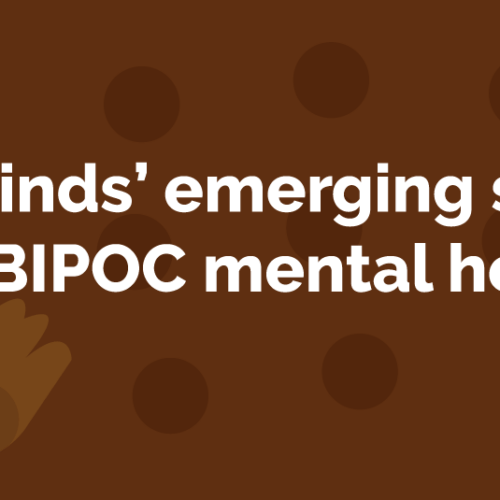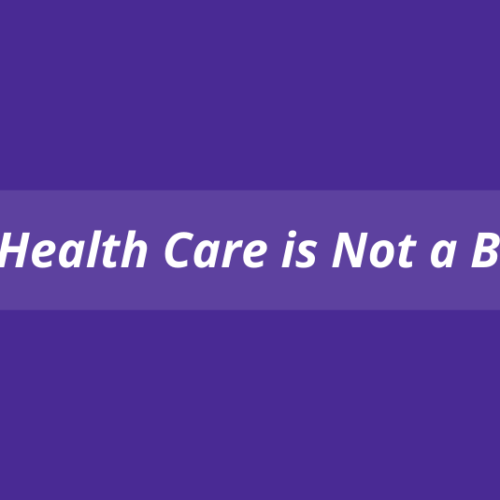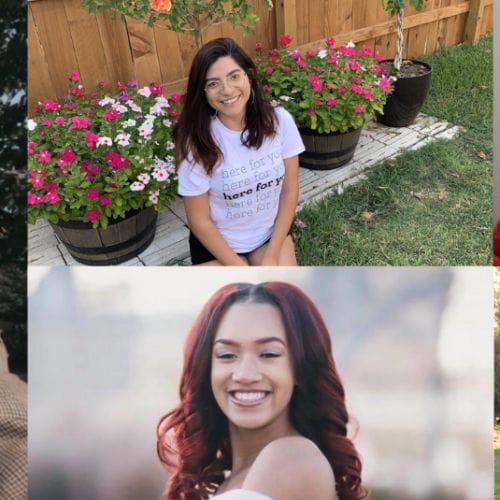The need for mental health research based on lived experiences of the communities most affected by health disparities is crucial. One of Active Minds’ longest-running programs, the Emerging Scholars Fellowship showcases the importance of Black, Indigenous, and People of Color (BIPOC) voices in mental health research. We have long known that BIPOC young adults experience higher rates of negative physical and mental health outcomes due to social, economic, and environmental inequities that are rooted in systemic oppression and discrimination. To find solutions that are relevant, culturally appropriate, and based upon a foundation of lived experience, we need to invest in BIPOC advocates and researchers, both financially and emotionally.
This year’s cohort of Emerging Scholars, supported by the Scattergood Foundation for Behavioral Health and Avi and Sandra Nash, devoted months of research on everything from the barbershop community and men’s mental health, to the sexual health and impact of trauma-informed interventions on Native American adolescents, to the impact of anti-fat bias on college-aged women. These subjects, chosen by the scholars themselves, reflect the personal experiences they’ve seen in their own communities, and their work will continue to inform solutions in the mental health world, including those developed at Active Minds for our network of chapters, workplaces, and communities.
The scholars, after months of planning, researching, and finalizing data, presented their findings to a panel of mental health funders and advocates. Their work dove into topics that impact everyday societal norms urging us to think and operate differently. I was impressed with their phenomenal talent to use art, culture, and literature to continue to advance the conversation about various facets of mental health. The 2022 cohort of Emerging Scholars has presented thought-provoking research, questions, and resources pushing to advance the Mental Health field with a cultural understanding and influence. Following the final presentation, scholars were given a chance to reflect on the program, and share what they found most helpful, as well as where they plan to take their expertise next.
Brandon Bond, a second-year master’s candidate at the University of Michigan whose project focused on examining the sense of belonging and self-esteem for college students of African descent by setting up a barbershop on campus, shared the following about his experience in the Emerging Scholars Fellowship: “Through this fellowship, I was able to gain insight into diverse and nuanced aspects of mental health and wellness, specifically for QTPOC [Queer and Trans People of Color] populations… This program reassured me that we are long overdue for reframing, reimagining, and investing in culturally tailored holistic wellbeing.”
Saharra Dixon, a first-year doctoral student at the University of Massachusetts Amherst who studied the experiences of Black women with body-focused repetitive behaviors (BFRBs) and the stigmatization of their mental health, said of the fellowship, “It was a lovely experience and I am grateful to have had the opportunity to complete a passion project of mine. From knowing no one else with BFRB to bringing advocacy and awareness of BFRBs to such a large platform was gratifying and quite cathartic for nine-year-old me.”
Developments in mental health research, and recommendations for how to continue to create a culture that is embracing of everyone’s mental health, should continue to come from all communities, and we need to continue to make a conscious effort to fund, develop, and publicize these projects whenever possible. To learn more about this year’s scholars, click here.
Stay tuned for additional blogs this month from our scholars, as they continue to share their important work with the broader mental health community!
Additional information about the Emerging Scholars Fellowship is available on our website.







